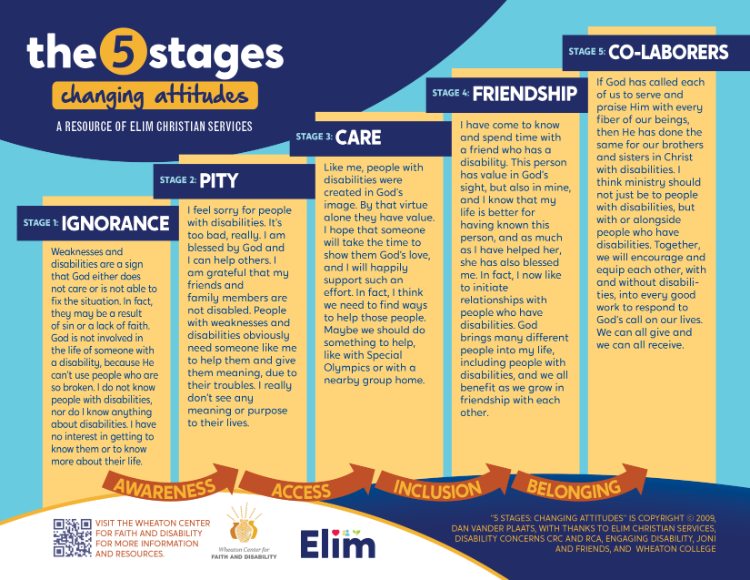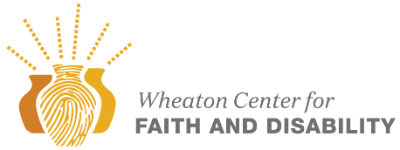Below are the five stages of changing attitudes people typically move through as they grow in their understanding of disability issues. Where would you locate yourself?

Downloadable PDF versions: English | Albanian| Chinese | Chinese (Traditional) | Dutch | French | German | Hindi | Hindi (Formal) | Indonesian| Italian| Korean | Korean (Formal) | Malaysian | Russian | Spanish | Turkish | Ukrainian | Mongolian | Nepalese | Arabic | Slovenian | Swahili
Translation to Other Languages
If you have questions about the stages of attitudes or would like to submit a new translation, email danvanderplaats@gmail.org. Download this template to submit a new translation.
For more information, download the eBook There Is No Asterisk
Stage 1: Ignorance
Weaknesses and disabilities are a sign that God either does not care or is not able to fix the situation. In fact, they may be a result of sin or a lack of faith. God is not involved in the life of someone with a disability, because He can't use people who are so broken. I do not know people with disabilities, nor do I know anything about disabilities. I have no interest in getting to know them or to know more about their life.
Stage 2: Pity
I feel sorry for people with disabilities. It's too bad, really. I am blessed by God, and I can help others. I am grateful that my children are not disabled. People with weaknesses and disabilities obviously need someone like me to help them and give them meaning, due to their troubles. I really don't see any meaning or purpose to their lives.
Stage 3: Care
Like me, people with disabilities were created in God's image. By that virtue alone they have value. I hope that someone will take the time to show them God's love, and I will happily support such an effort. In fact, I think we need to find ways to help those people. Maybe we should start a special church education class, or respite care for the sake of the parents.
Stage 4: Friendship
I have come to know and spend time with a friend who has a disability. This person has value in God's sight, but also in mine, and I know that my life is better for having known this person, and as much as I have helped her, she has also blessed me. In fact, I now like to initiate relationships with people who have disabilities. God brings many different people into my church and community, including people with disabilities, and we all benefit as we grown in friendship with each other.
Stage 5: Co-Laborers
If God has called each of us to serve and praise Him with every fiber of our beings, then He has done the same for our brothers and sisters in Christ with disabilities. I think ministry should not just be to people with disabilities, but with or alongside people who have disabilities. Together, we will encourage and equip each other, with and without disabilities, into every good work to respond to God's call on our lives. We can all give and we can all receive.
The 5 Stages: Changing Attitudes" is copyright ©2014, Dan Vander Plaats with special thanks to Wheaton College Center for Faith and Disability, and thanks to Elim Christian Services, Disability Concerns CRC, Disability Concerns RCA, Joni and Friends, and many others
